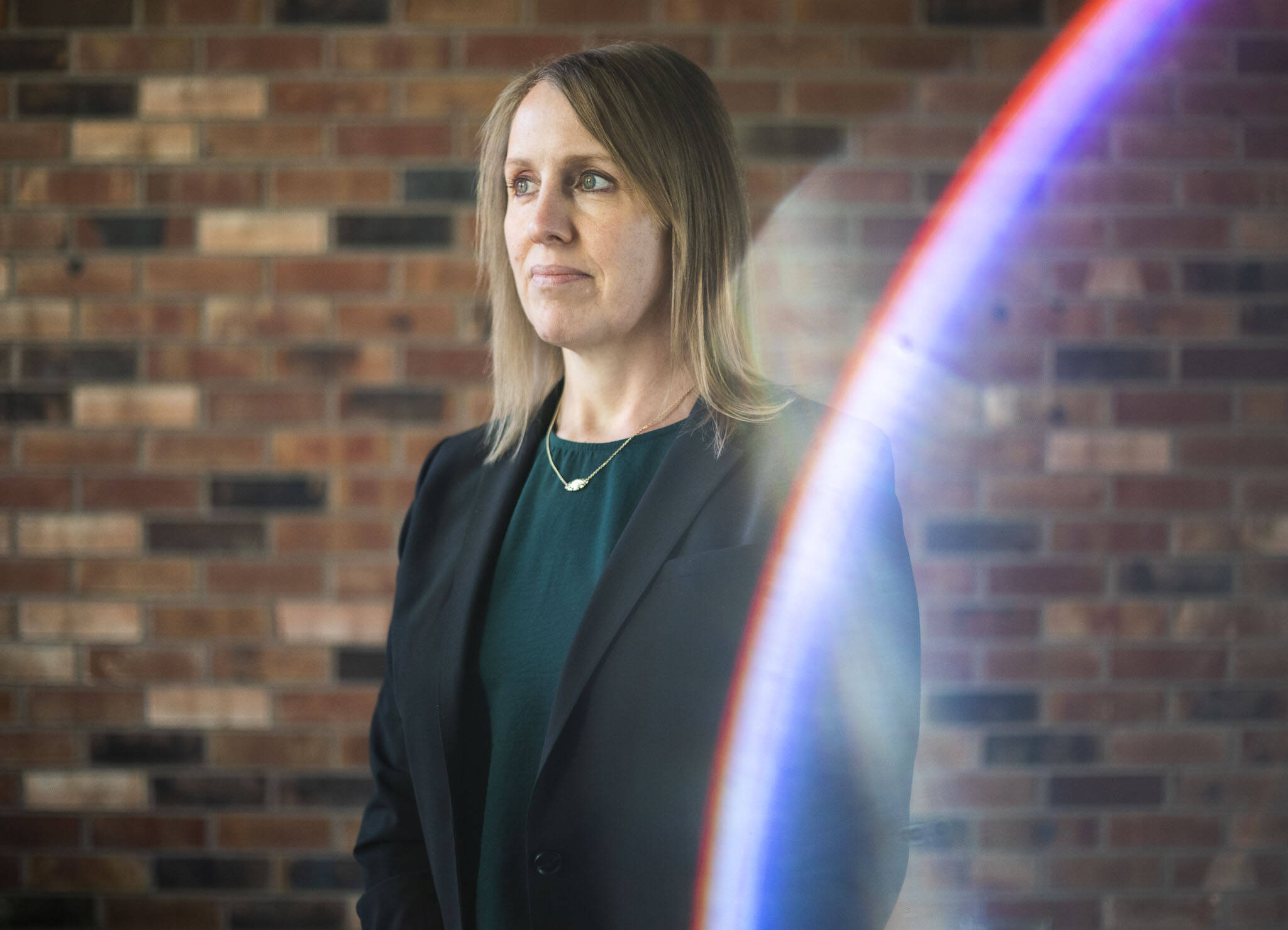OLYMPIA — High school can be daunting.
For pupils entering ninth grade, the stakes feel higher, the other students are older and the classes are harder.
But it’s a pivotal year. Students who end ninth grade having passed all their classes are four times more likely to graduate high school than those who don’t, state data shows. And passing ninth grade is a greater predictor of future success than test scores, poverty, ethnicity or race, according to the state Office of the Superintendent of Public Instruction.
Over the past five years, the state has invested nearly $5 million in a grant program working to keep ninth graders on track to graduate. This grant money has allowed schools to stay “laser focused” on that goal, said Jeanne Willard, the executive director for college and career readiness at Everett Public Schools.
“When they leave ninth grade successful, they’re probably going to see success throughout high school,” Willard said.
The program is used in 29 districts across the state, with 13,000 students served so far. The Everett, Mukilteo and Stanwood-Camano school districts are three of those participants.
But the money powering the program expires in June, leaving the program at risk if lawmakers can’t make room for it in their budget.
‘Lasting impacts’
So, what does the program actually do?
The Ninth Grade Success Grant pays for more staff time for teachers to talk to students and understand why they are failing classes or not showing up. Using data, educators can create plans to help struggling students.
The plans may suggest more one-on-one tutoring or mentoring. Or teachers may need more training in building relationships and engaging with students, all of which the grant funds.
“It’s a big transition to go from middle school to high school,” Willard said. “If we’re all rallied around kids when they first enter, that time we spend with them pays off year after year.”
For the 2022-2023 school year, Everett Public Schools received $50,000, split evenly between Cascade and Everett high schools. For this year, the district received $20,000.
When Everett started the program in 2022, ninth graders had just come out of a virtual, pandemic-era classroom experience.
It was a fresh start for them, Willard said.
It isn’t just good grades that keep students on track. Having a strong sense of belonging in school also brings success.
“A lot of the focus is about making a big school feel small,” Willard said.
The program has yielded results. In 1½ years, Everett and Cascade high schools have seen a nearly 5% increase in ninth graders on track to graduate, Willard said.
In Mukilteo, Kamiak and Mariner high schools saw 4% and 9% increases, respectively, in ninth graders on track between 2021 and 2023.
Stanwood High School saw a 4% uptick in the same period.
Kia Franklin, the executive director of the Seattle-based education advocacy nonprofit Stand for Children Washington, said the biggest result came from Meridian High School in Bellingham. The percentage of ninth graders on track to graduate increased from 72% to 87% over the past three years.
“We’ve got educators telling us they’ve worked for decades and this is one of the things that is working well in their system,” Franklin said.
With a few more years, Franklin expects data will show the correlation between the program and entrance into higher education.
“There’s real lasting impacts if you stick with this,” Willard said.
‘This is important to us’
The grant began as a pilot in 2018.
To keep the program going three years later, the Office of the Superintendent of Public Instruction funded the program with federal pandemic relief money to expand it to more schools.
But that funding is set to expire in June, said Kefi Andersen, the state’s Ninth Grade Success lead.
Advocates of the program hoped Gov. Jay Inslee would allocate $2.9 million for the program when he released his proposed supplemental budget last month. But he money they hoped for wasn’t in his proposal.
Inslee spokesperson Mike Faulk, however, said the governor would support the decision if lawmakers choose to fund the program.
“This is a very good program,” he wrote in an email. “It ultimately didn’t make the proposed budget over other programs like more funding for meals, increases for special ed funding and paraeducator pay increases that were included.”
In the legislative session, budget writers have the chance to modify Inslee’s budget to make provisions as needed, and pass a final version before the session concludes March 7.
At this point, it is too early to determine if funding for the program will be written into the final budget. But the Ways and Means Committee will certainly consider it, said state Sen. June Robinson, D-Everett. Robinson listened to several advocates testify in support of the program in a budget meeting last week in her position as chair of the committee.
If budget writers don’t include more money for the grant program, it could end.
However, there is another pathway to fund the project, Franklin noted.
A bill sponsored by Rep. Monica Stonier, D-Vancouver, would ensure funding for the Ninth Grade Success program until 2030. It’s set for a public hearing Wednesday in the House Appropriations Committee.
If money still can’t be acquired for the grant, Willard said the school will try its best to keep up the practices that started two years ago.
But without the sustained funding, she said, it will be hard to keep the same focus on ninth graders.
“We wouldn’t abandon it by any means,” Willard said. “This is important to us.”
Jenelle Baumbach: 360-352-8623; jenelle.baumbach@heraldnet.com; Twitter: @jenelleclar.
Talk to us
> Give us your news tips.
> Send us a letter to the editor.
> More Herald contact information.

























